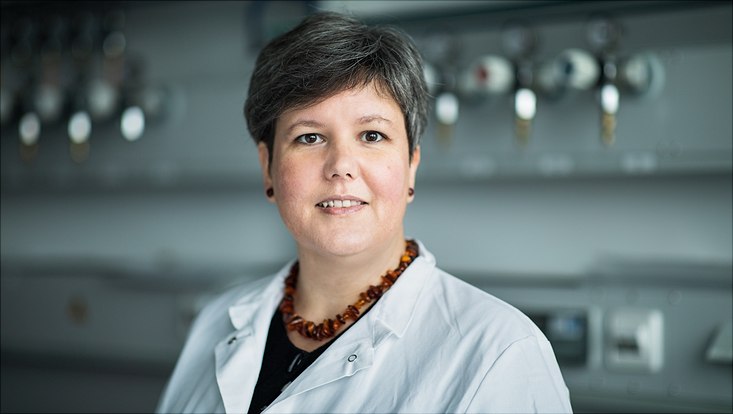“Welcome Aboard!”“Statistics help us understand how we experience the world.”Prof. Dr. Simon Grund will strengthen the Department of Psychology.
1 April 2022, by Grund / newsroom

Photo: Thomas Faust
Every year, Universität Hamburg welcomes numerous new researchers. This series introduces them and their areas of research. This time: Prof. Dr. Simon Grund
In Summer Semester 2022, Prof. Dr. Simon Grund, previously of the Leibniz Institute for Science and Mathematics Education (IPN) in Kiel, will be joining the Faculty of Psychology and Human Movement as a professor of psychology with a focus on the teaching of quantitative methodology.
My research area in 3 sentences:
My research focuses on the development and evaluation of statistical methods in psychology. My current research focuses on methods of analyzing incomplete data, improving the reproducibility of psychological research findings, and analyzing hierarchical and other complex data infrastructure. Essentially, I am pursuing 3 goals: to understand and further develop research methods; to make them usable for psychologists; and to thereby support psychological research as a whole.
This is how I explain my research to my family:
Psychology involves one of the most interesting of research subjects generally: human beings, their behavior, and how they experience the world. Researching this topic, however, is a huge challenge because human beings often do not behave predictably and the qualities that are interesting—personality, interests, or emotions—are often not directly observable. In my research, I therefore try to develop methods by which psychologists can better understand and judge these complex connections.
In Hamburg, the city and the University, I am looking forward to:
Universität Hamburg offers excellent conditions for my research and I am looking forward to the rich, exciting research environment and cooperation with my new colleagues at the Institute of Psychology. I have gotten to know Hamburg as a lively, open city, so I am looking forward to taking advantage of its many cultural opportunities and to spending a few warm nights on the Alster.
These are my plans at Universität Hamburg (with regard to knowledge exchange, teaching, etc.):
I want to use my research to support psychological research by strengthening quantitative methods and the field’s different areas of application and to increase the visibility of quantitative research at home and abroad. In my teaching, I want to provide my students with a modern view of statistical methods and to pique their interest in a quantitatively oriented psychology and research on these methods.
This is why students should come to my lectures:
Quantitative methods are a sub-field of psychology that are often seen as especially difficult. To me, however, they are the most exciting because quantitative methods provide the essential tools for a scientific understanding of human experience and behavior.
They are the glasses through which we see the data on our human behavior that we also try to learn from. Thus, I would like to enable my students not only to understand and use statistical methods but to encourage them to see them as an opportunity to discover new lines of inquiry and to ultimately arrive at a greater understanding of human experience and behavior.
Reaching out to the world: I work with the following international and federal institutions and universities:
Quantitative methods play a large role in psychological research the world over. This is why I cooperate in the field of methodology research and in applied science projects both here and abroad, with colleagues at different institutions, including in Münster, Ulm, Kassel, Kiel, and London.
My research is important for society because:
My research goal is to improve the methodological quality of psychological research overall. Thus, the effects of my research on society are more indirect. The methods that I investigate, however, are also used in other fields of research, for example in education, sociology, and medicine.


